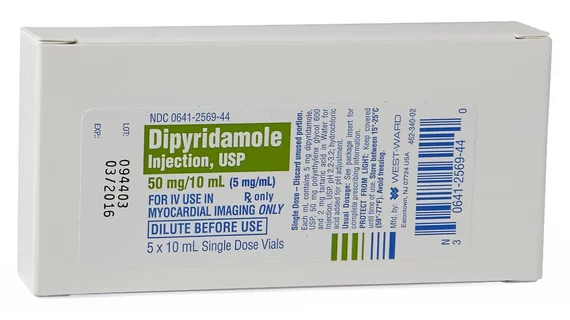‘I have no dose for anyone right now’: Drug shortage hits cardiologists in Canada, leading to delays
Heart patients in Canada are experiencing delays care due to a countrywide shortage of dipyridamole, an antiplatelet medication that is also used to dilate blood vessels during certain cardiac imaging exams.
CBC reported on the shortage, highlighting its impact on patient care.
“I have no dose for anyone right now,” Calgary cardiologist Anmol Kapoor, MD, told the publication. Kapoor noted that he recently ran out of dipyridamole and is now postponing tests as a result.
“It's very important,” he added. “This is a life-saving test and it's very frustrating that we can't access the medication.”
Tim Boyne, BSc, MSc, MD, director of nuclear cardiology at Calgary-based TotalCardiology, told CBC he and his colleagues are working to preserve dipyridamole when possible. However, the shortage is widespread enough that all hospitals are feeling its effect.
“We've asked the hospital as to whether they have excess material that they can share and they are sadly facing the same predicament that we are,” he said.
Canada’s government has categorized the ongoing issue as a Tier 3 shortage, meaning it has “the greatest potential impact" on the country’s drug supply and its healthcare system. More information on Tier 3 shortages is available here.
Click the link below for the full story from CBC:

